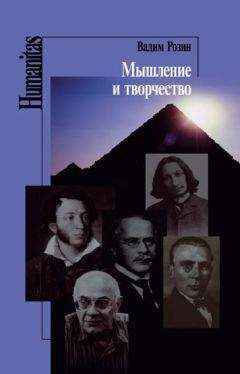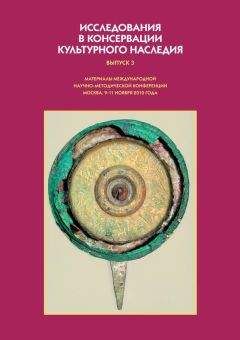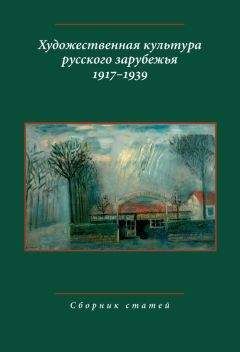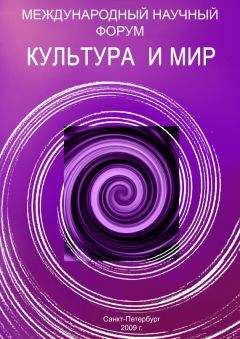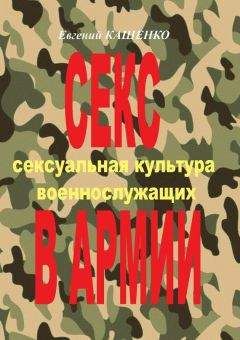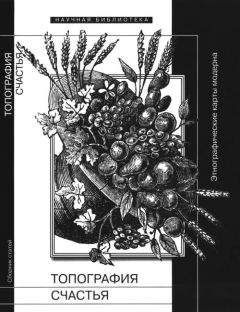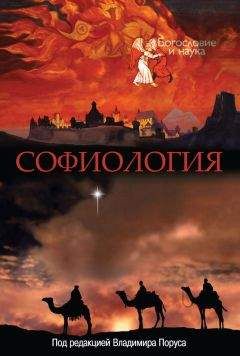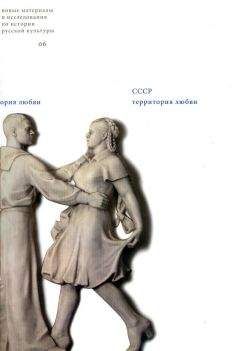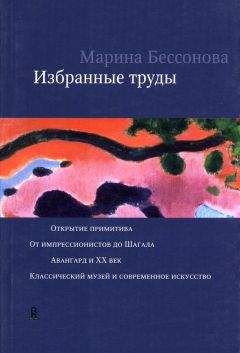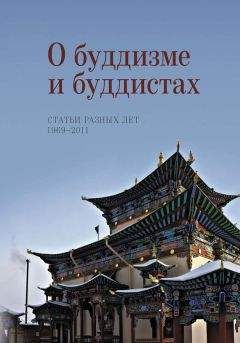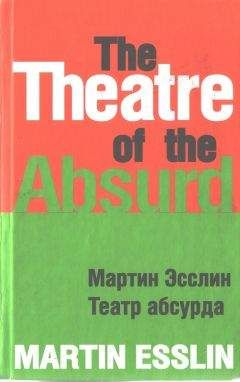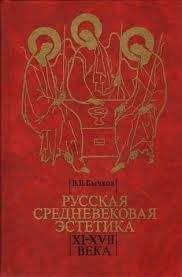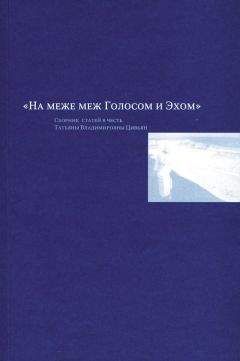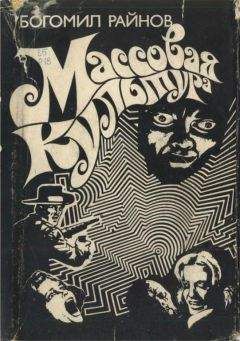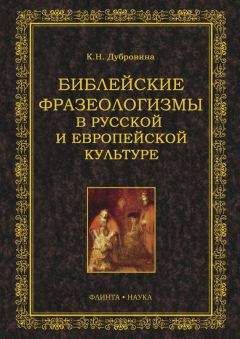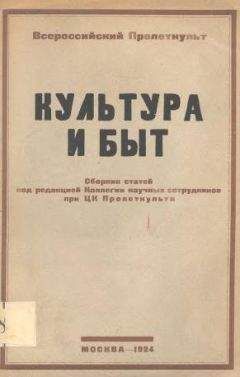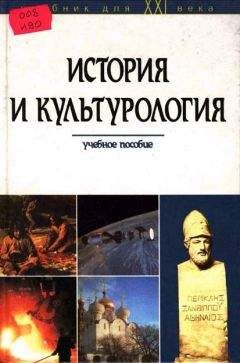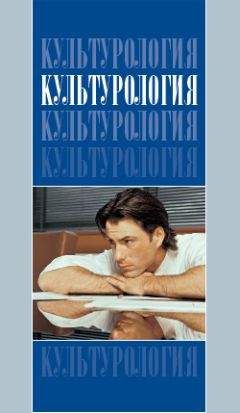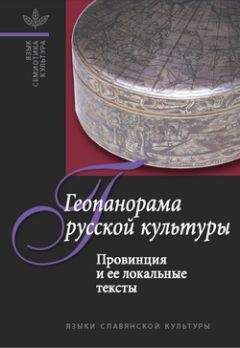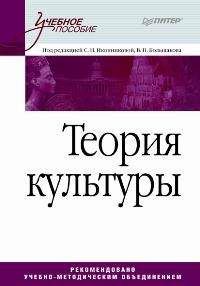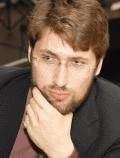Ольга Буренина - Абсурд и вокруг: сборник статей
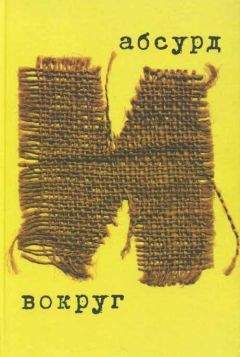
Скачивание начинается... Если скачивание не началось автоматически, пожалуйста нажмите на эту ссылку.
Жалоба
Напишите нам, и мы в срочном порядке примем меры.
Описание книги "Абсурд и вокруг: сборник статей"
Описание и краткое содержание "Абсурд и вокруг: сборник статей" читать бесплатно онлайн.
Содержание сборника отражает программу международной конференции «Абсурд и славянская культура XX в», которая состоялась в октябре 2001 г в Цюрихском университете, объединив представителей самых разных научных дисциплин. Одна из главных задач сборника — на фоне современного теоретического дискурса об абсурде описать феномен абсурда (мировоззренческий, логический, художественный) в культуре XX в., показать его междискурсивный и межкультурный характер. В связи с этим выбранное нами название «Абсурд и вокруг» — в некоторой степени и полемическая отсылка к коллективному труду «Around the Absurd: Essays on Modem and Postmodern Drama», авторы и составители которого ограничивали понимание абсурда лишь сферой театрального искусства.
Сборник рассчитан на специалистов по литературоведению, философии, искусствоведению и теории культуры, а также на более широкий круг читателей, интересующихся вопросами абсурда в культуре.
The conflict between industrialisation and what is known as basic needs of technology in economic planning for the Third World highlights the role of technological finitude, which the ideology of power can never admit. It is not sufficient to argue that technology creates its own values within an ever-expanding horizon of development; that resembles the spurious argument that the market economy is free of ethical values. In the current global economy, all the values of technology are created under the sign of power. Conversely, what was only ever of virtual significance and applicable to technology as well: namely, that all values of technique are created under the sign of mortality. Technology, in its use and in the meaning derived from that use, is now the material form of immortality, of a reality which is becoming more and more virtual as it distances itself from the irreducible negativity of the human experience.
As I stated before, uncertainty is an essential part of technique: there is no assurance that a technical act will succeed, whether in the fabrication of an object or the creation of an artwork, in social negotiation or in political planing, in the phenomenology of individual experience or in the exploration of intersubjectivity. The difficulty of this experience of uncertainty can be seen in twentieth century artistic and philosophical works, especially in the philosophy of Derrida, psychoanalysis of Lacan or the fiction of Beckett. The Dionysian aphorism of Nietzsche became the evidence of finitude and absurdity in the aphorisms of Wittgenstein and the paratactic manoeuvres in post-Modemist poetry.
Technique is what inhabits and informs the head of Janus, technologically evacuated by the renunciation of archaic notions of the unified self; but that is a „self“ which we find as a spectacle, as an object, whereas any useful notion of the self must be on the ground of an event-structure, unable to posit its mortality and negativity. For example, the functioning of microprocessors is limited by the limitations on their memory, since their experiential dynamic is entirely pro-active: memory is for use. This dichotomy is perfectly illustrated by Beckett's play Krapp's Last Tape. The aged Krapp is listening to a tape he made at the age of thirty-nine, on which he is declaring the happiness he has found in love and his consequent decision to cease recording, since there will no longer be any need for it. The old man listens over and over again to the lyrical speech of his younger self now becoming unbearably poignant in his loneliness and decrepitude. The tape» s memory and the man's memory belong to two different worlds, which can never be reconciled except in the desperate shuttling back and forth of rewinding. Krapp exists, if anywhere, in this catastrophic movement, which is nothing but the event-structure, the concrescence, of his mortality. The machine, once a solace and a pleasure, has become an instrument of torture, not because it has the inhuman power of automatism but because it consigns him to the melancholy of defeat. There is no mediation possible except in a continuous dislocation and dismemberment of subjectivity. The imagination of mortality and effect of mourning shadow the efficient memory of the machine from which Krapp is excluded by the mere fact of his difference.
This leads us to the observation that real technology and virtual technology are of different natures, if real and virtual are taken to refer to the degree to which mortality composes the experiential field of their operation. The first involves a conflictual meaning and the second a non-conflictual meaning (i.e. the assumption that there is pure information, which has a value per se). It could be argued that this is a false distinction, since all technology becomes real as it becomes past: the Gothic cathedral, the great iron structures of the nineteenth century and the supercomputer are all the real solutions to virtual problems. The difference lies in the excess of means, which characterized those earlier technologies: the cathedral or the bridge employs more strength than is necessary for the weight to be borne, the technical means exceeding the effective end. The supplement is a supplement of the human imagination unsure as to the response of the material: the structure is a priori so threatened by mortality that excessive means must be used to guarantee its survival. In information technology, on the other hand, there is a convergence of means and ends. It uses the information it generates as its own material: it is the apotheosis of subjectivity projected into the domain of the material, which thereby becomes virtual (subjective-in-itself).
Furthermore, information technology, like all advanced technologies, is surrounded by a financial and political network that constitutes its true technical ensemble. Electronic fund management is a fusion of the financial and the technological to the point where they become synonymous. In that way, failure — including the «failure» of the South to be as efficient as the North — is an essential part of creation, having value when it re-activates the memory of time and the experience of mortality. Failure in technology has no such effect on technology, which is and always will be deprived of the transhistorical genetic function which consciousness is. The sinking of the Titanic, the explosion of the space shuttle Challenger, the failure of a transplant operation are perceived as a tragedy and as a technical problem on two different registers, the human and the inhuman. Technological failure destroys the mediation between these two domains, where the failure of technique, the creative event under the sign of mortality, reinforces it. Deaths due to technological failure are instantly expelled from the technological sphere, which cannot admit of mortality. In this context, I would like to quote Herbert Markuse: «The knife (direct device), and even the gun, are much more a „part“ of the individual that uses them because they connect the individual intimately with its goal. Moreover, more importantly, unless they are used for a particular purpose to satisfy particular human needs (e.g. surgeon, housewife), their use becomes criminal — it is an example of an individual crime, and as such, it should be given severe punishment. Contrary to that, technological aggression is not considered a crime. A driver who drives a car or a boat too fast is not called a murderer even though that might be the case. Moreover, those who launch missiles are less likely to be called murderers»[279].
The speed of technological change is a function of a contemporary desire to escape from the stasis of absurd to the dream of virtual reality as a permanent super session. Subjectivity is the inhabiting of a complex of actual occasions, a nexus of events which is unique in its temporal occurrence, no matter how much it is a function of repetitive structures or subject to what Whitehead calls the «ingressions» of the non-actual (for example, the recurrent causality of technical progress or the serial law of neurosis). In that sense the subject is a function of belief, not as the object of desire but as a mode of desiring, principally desiring to be conscious of the material reality of mortality. Hence the antithetical dualisms, which riddle our thinking and our culture: as Beckett writes in The Unnamable, «the role of objects is to restore silence». The role of technology has become one of abolishing silence as the belief in the reality of the object has been eroded. Yet, again, the object is no more an object of belief than belief itself is an object of thought: they are complex events seized in the spatiotemporal meaning, the putative unity of finite experience. Both cultural and technical objects, whether element, individual or ensemble, are events like entering a skyscraper, reading a poem, overcoming the fear of flying, learning how to use a computer or mourning the death of a parent. All these situations can comprise elements of melancholy, anxiety or absurdity inscribed within their temporal occurrence.
The well-known French writer and philosopher, Albert Camus, claims in his «Myth of Sisyphus» that the absurd exists because reality does not satisfy our requests. In a way, this points to the fact that reality could satisfy these requests if it were different.
Let us see for example the myth of Sisyphus. Sisyphus is the absurd hero. This man sentenced to endlessly rolling a rock to the top of a mountain and then watching its descent is the epitome of the absurd hero. Sisyphus is conscious of his plight, and therein lies the tragedy. For if, during the moments of descent, he nourished the hope that he would yet succeed, his labour would lose its torment. But Sisyphus is clearly conscious of the extent of his own misery. It is this lucid recognition of his destiny that transforms his torment into his victory. It has to be a victory for as Camus says:
I leave Sisyphus at the foot of the mountain I One always finds one's burden again. But Sisyphus teaches the higher fidelity that negates the gods and raises rocks. He too concludes that all is well.
This universe enceforth without a master seems to him neither sterile nor futile. Each atom of that stone, each mineral flake of that night-filled mountain, in itself forms a world. The struggle itself towards the heights is enough to fill a man's heart. One must imagine Sisyphus happy[280].
Sisyphus's life and torment are transformed into a victory by concentrating on his freedom, his refusal to hope, and his knowledge of the absurdity of his situation. This myth can be used as a good example to portray the difference between man's intent and the resultant chaos he encounters.
The ideas behind the development of the absurd hero are present in the first three essays of the book. In these essays Camus faces the problem of suicide. In his typically shocking, unnerving manner he opens with the bold assertion that:
There is but one truly serious philosophical problem and that is suicide (p. 3).
He goes on to figure out whether suicide is a legitimate answer to the human predicament. Or to put it another way: Is life worth living now that God is dead? The discussion begins and continues not as a metaphysical cobweb but as a well-reasoned statement based on a way of knowing which Camus holds is the only epistemology we have at our command. We know only two things:
This heart within me I can feel, and I judge that it exists. This world I can touch, and I likewise judge that it exists. There ends all my knowledge, and the rest is construction (p. 14).
With these as the basic certainties of the human condition, Camus argues that there is no meaning to life. He disapproves of the many philosophers who «have played on words and pretended to believe that refusing to grant a meaning to life necessarily leads to declaring that it is not worth living» (p. 7). Life has no absolute meaning. In spite of the human's irrational «nostalgia» for unity, for absolutes, for a definite order and meaning to the «not me» of the universe, no such meaning exists in the silent, indifferent universe. Between this yearning for meaning and eternal verities and the actual condition of the universe there is a gap that can never be filled. The confrontation of the irrational, longing human heart and the indifferent universe brings about the notion of the absurd.
The absurd is bom of this confrontation between the human need and the unreasonable silence of the world (p. 21).
and further:
The absurd is not in man nor in the world, but in their presence together… it is the only bond unitingthem (p. 21).
According to Camus people must realize that the feeling of the absurd exists and can happen to them at any time. The absurd person must demand to live solely with what is known and to bring in nothing that is not certain. This means that all I know is that I exist, that the world exists and that I am mortal.
Doesn't this make a futile pessimistic chaos of life? Wouldn't suicide be a legitimate way out of a meaningless life? «No». «No», answers Camus. Although the absurd cancels all chances of eternal freedom it magnifies freedom of action. Suicide is «acceptance at its extreme», it is a way of confessing that life is too much for one. This is the only life we have; and even though we are aware, in fact, because we are aware of the absurd, we can find value in this life. The value is in our freedom, our passion, and our revolt. The first change we must make to live in the absurd situation is to realize that thinking, or reason, is not tied to any eternal mind which can unify and «make appearances familiar under the guise of a great principle», but it is:
… learning all over again to see, to be attentive, to focus consciousness; it is turning every idea and every image, in the manner of Proust, into a privileged moment (p. 20).
My experiences, my passions, my ideas, my images and memories are all that I know of this world — and they are enough. The absurd person can finally say «all is well».
I understand then why the doctrines that explain everything to me also debilitate me at the same time. They relieve me of the weight of my own life, and yet I must carry it alone (p. 41).
Camus then follows his notions to their logical conclusions and insists that people must substitute quantity of experience for quality of experience. The purest of joys is «feeling, and feeling on this earth». Of course, this statement cannot be used to claim a hedonism as Camus's basic philosophy, but must be thought of in connection with the notion of the absurd that has been developed. Man is mortal. The world is not. A person's dignity arises from a consciousness of death, an awareness that eternal values and ideas do not exist, and a refusal to give in to the notion of hope or appeal for something that we are uncertain of and cannot know. Is it possible in the technological civilization?
The human subject is at one remove from the technological subject because the authority of the former precedes that of the latter by virtue of the instability of the dynamics of consciousness. Creativity is multidirectional: Janus has many faces, some of which are forever hidden from knowledge. Meaning occurs at the interface of what exists and what does not yet exist, the one infinitely regressive, the other infinitely progressive; hence, for example, the ambivalence of art in relation to the past, and the determining function of memory in thought. Technique is what inscribes the subject in the world where absurdity and creativity are the reciprocal conditions of the event itself, rather than of the subject. Technique is the sanction of the finite subject, because it brings to bear a multiplicity of constitutive energies upon a circumscribed occasion of meaning. This is the creative, non-transcendent obverse of Husserl's re-activation of the past: what is more urgent is to find the value of the activation of the present, its precariously creative plenitude and catastrophic self-evacuation, its paradoxical status as both temporal process and a temporal form, its inability to be either identical to itself or different from itself. The irony is that such values can only be performed, not thought; and this is precisely the motive of technology. There is no greater power, political, moral etc., that could direct at will its potential. And finally, science, especially after Hiroshima, is not a pursuit for truth any more, but for power. An emerging ideology of science is soteriology — the view that only science holds the key to the future. Science has become divine. This image of science entails a high status of experts, who all too often fail and resolve nothing. Many needs and trends are absurd. A pursuit for producing more and more at all costs and doing it faster and faster is also absurd. The latter feature strikes a blow at democracy, which is slow. Moreover, some very costly projects are launched with no clear vision for their purpose (e.g. orbital stations, space anti-nuclear defense systems), or knowing that their full power will not be used (e.g. fast cars), only because technology makes it possible. It is absurd to rely on technology as the means of increasing productivity. Specialized technology requires specialists, which easily lead to emergence of the class of technocrats. This technology results in centralized power that has to oversee, for instance, nuclear power plants.
Подписывайтесь на наши страницы в социальных сетях.
Будьте в курсе последних книжных новинок, комментируйте, обсуждайте. Мы ждём Вас!
Похожие книги на "Абсурд и вокруг: сборник статей"
Книги похожие на "Абсурд и вокруг: сборник статей" читать онлайн или скачать бесплатно полные версии.
Мы рекомендуем Вам зарегистрироваться либо войти на сайт под своим именем.
Отзывы о "Ольга Буренина - Абсурд и вокруг: сборник статей"
Отзывы читателей о книге "Абсурд и вокруг: сборник статей", комментарии и мнения людей о произведении.





